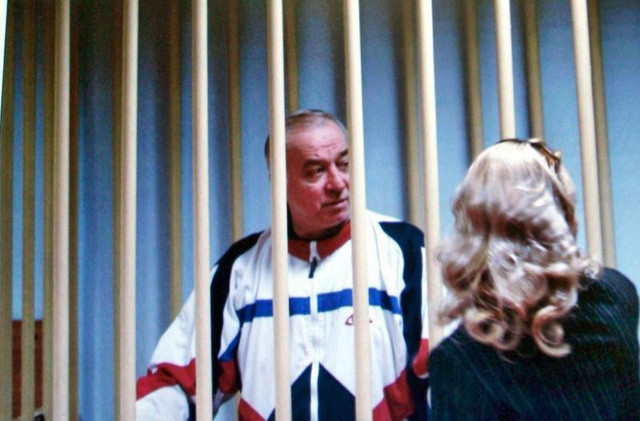Former Russian intelligence colonel poisoned in UK
A new poisoning case in the UK is like the Cold War era. A former Russian military intelligence colonel was poisoned in a shopping mall in the UK.

Sergei Skripal talks to his lawyer while in prison in Russia in 2006. Photo: AP
On March 5 (local time), people saw a 66-year-old man and a 33-year-old woman lying unconscious on a bench in a shopping mall in Salisbury (southern England).
Police did not identify the two victims, only saying they were taken to hospital for emergency treatment after being exposed to an unknown poison and the man was in critical condition.
NewspaperThe GuardianThe two victims were known to each other, had no external injuries and may have been poisoned with fentanyl, a dangerous painkiller that is 100 times more addictive than morphine. Just 1 milligram of fentanyl is enough to kill.
According to BBC, the man's name is Sergei Skripal, a former Russian military intelligence colonel. In 2006, Sergei Skripal was sentenced by a Russian court to 13 years in prison for treason.
According to the indictment, Sergei Skripal was paid $100,000 to provide the British Secret Intelligence Service (MI6) with the identities of Russian spies planted in Europe.
In 2010, Sergei Skripal was pardoned, and then, along with three other Russian spies, was exchanged for 10 Russian spies expelled by the US and UK, including young businesswoman Anna Chapman, known as the "new Mata Hari" in New York.
It was the biggest spy swap since the end of the Cold War. Sergei Skripal then resided in Britain.
The poisoning of Sergei Skripal is said to be similar to that of Alexander Litvinenko, a former spy of the Russian Federal Security Service (FSB). In October 2000, Litvinenko and his family fled Russia to the UK. In 2006, Litvinenko was poisoned with the extremely toxic radioactive substance polonium-210 in London (UK).
According to the investigation conclusion of the British investigation agency after Litvinenko's death, the victim was poisoned while having tea with two Russian citizens Andrei Lugovoi and Dmitri Kovtun in the Millenium hotel.
At that time, the judge in charge of the case, Robert Owen, commented: "The fact that the victim Alexander Litvinenko was poisoned with polonium-210 produced in a nuclear reactor shows that Lugovoi and Kovtun acted for a state, not a criminal organization."
On September 7, 1978, Bulgarian writer Georgi Markov was stabbed by an unknown assailant with a needle-tipped parachute while walking across London’s Waterloo Bridge. He developed a high fever that night and died in hospital four days later. An autopsy revealed ricin in his thigh. Bulgaria opened a criminal investigation but closed the case in 2013 due to the statute of limitations.

